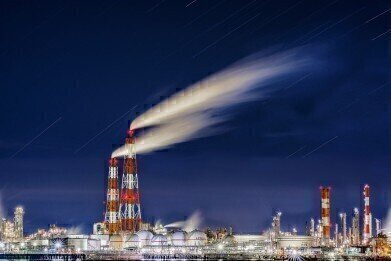Air Monitoring
Why Are Emissions Being Monitored? - Compliance
Jan 19 2022
The twin threats of air pollution and climate change are commanding significant media attention at the present time. The former has been identified as the most dangerous threat to the British public by the government, while the latter has been described by famed naturalist Sir David Attenborough as the “greatest challenge facing the world” in the 21st century. Both of them are caused or exacerbated by the emissions of certain gases, chemicals and toxins.
Since these emissions stem primarily from human industry and anthropogenic industry, it’s only logical that the authorities would seek to regulate them. A principal component of regulation is monitoring, since it’s only through continual measurement that we are able to see the volume of emissions prior to the introduction of restrictions and use past readings as a yardstick for future performance. In this sense, businesses must measure their emissions to achieve compliance on a basic level of legality.
Measuring industrial emissions
The biggest source of the most harmful types of air pollution and other undesirable emissions is through the combustion of fossil fuels. Despite its unpleasant side-effects, this practice has become a cornerstone of modern-day industry, with companies in a wide range of sectors relying on oil, coal and gas to power their day-to-day operations.
Of course, the larger an entity, the greater the emissions it will produce. It’s for this reason that the EU has brought in several directives aimed at ascertaining the emissions generated by a power station, manufacturing factory or other industrial plant. For instance, the EU’s Large Combustion Plant BREF is a framework which sets out the best practices for how a facility must monitor its emissions. Other directives are aimed at smaller plants, but carry the same principles at heart.
Similarly, building sites and demolitions are a chief source of all kinds of contaminants and harmful gases. With that in mind, the UK government has introduced stricter requirements on companies operating in the construction industry to monitor their output, thus furnishing the public with better information on the dangers posed by those types of works.
Measuring domestic emissions
While corporations and companies are responsible for a far larger carbon footprint than the average Joe, all of us must pull in the same direction to limit emissions and address climate change. For this reason, there are a raft of other government initiatives and pieces of legislation which are aimed at individual consumers.
For example, the new stove emissions regulations set a minimum standard that must be observed in homes and businesses all over the UK. In recent years, installing a wood-burning stove or fireplace in domestic properties has become fashionable, but can entail the emissions of harmful pollutants like particulate matter and carbon dioxide. These laws aim to better safeguard both the local populace and the wider environment as a whole.
Meanwhile, transportation is an industry responsible for a significant proportion of all emissions, so it’s unsurprising that it is also heavily regulated in measurement terms. The fuels which are approved for use in petrol stations undergo rigorous testing before they are given the green light, while the vehicles themselves must also prove their ability to comply with the most up-to-date legislation before they can be legally sold in the UK, the EU and elsewhere.
For those keen to learn more on the subject, the upcoming CEM conference is set to take place virtually in March. Interested parties are invited to sign up to the online event and tune in from the comfort of their own home or workplace.
Digital Edition
AET 28.2 April/May 2024
May 2024
Business News - Teledyne Marine expands with the acquisition of Valeport - Signal partners with gas analysis experts in Korea Air Monitoring - Continuous Fine Particulate Emission Monitor...
View all digital editions
Events
Jul 30 2024 Jakarta, Indonesia
China Energy Summit & Exhibition
Jul 31 2024 Beijing, China
2024 Beijing International Coal & Mining Exhibition
Aug 07 2024 Beijing, China
IWA World Water Congress & Exhibition
Aug 11 2024 Toronto, Canada
Aug 25 2024 Stockholm, Sweden and online









.jpg)








